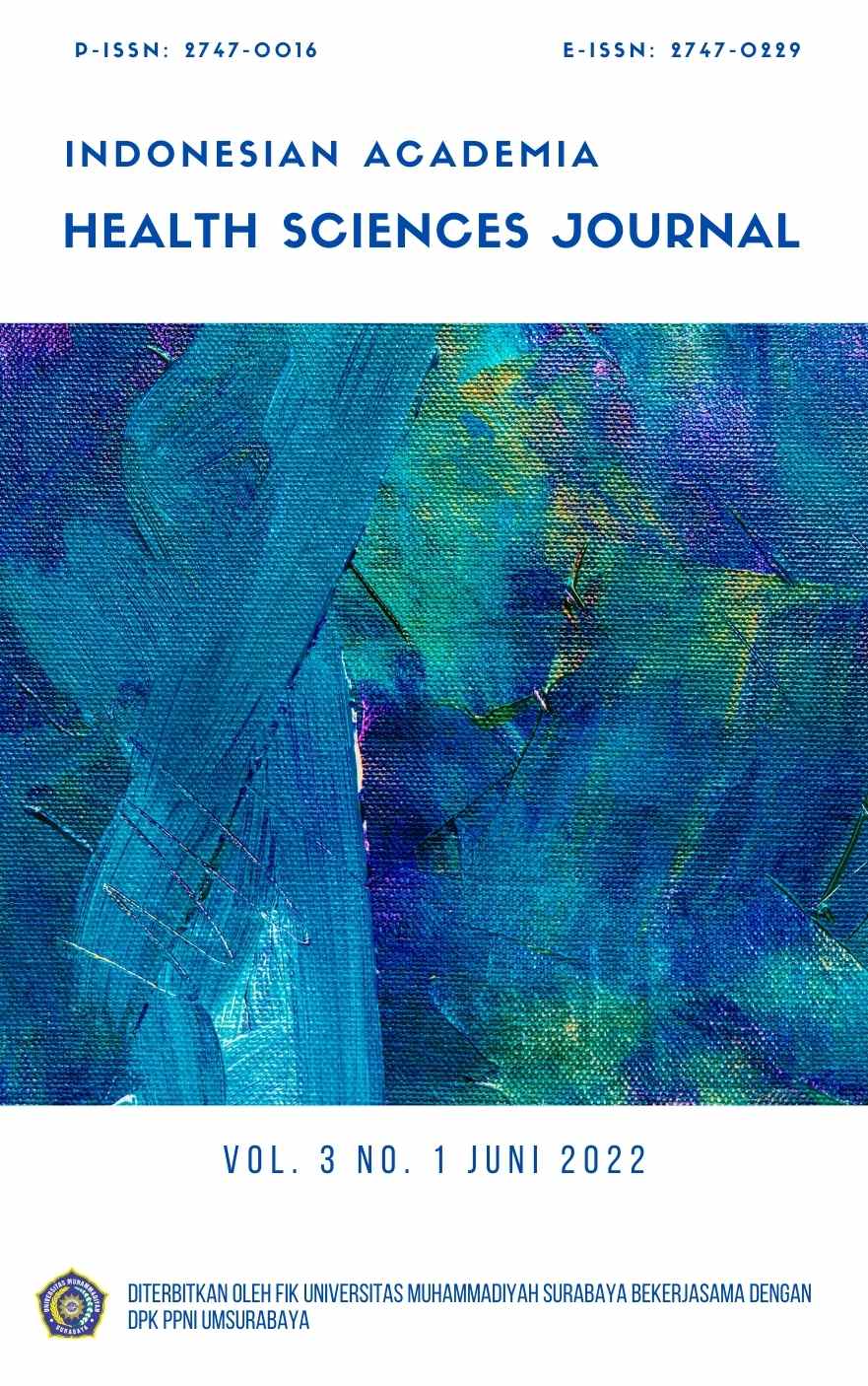The Effect of Mindfulness Meditation to Reduce Stress and Burnout Syndrome in Nursing: A Systematic Review
Abstract
This study aimed to identify and analyze research evidence in the form of articles relating to the effectiveness of mindfulness-based intervention programs in reducing stress levels and burnout in hospital. A systematic review conducted on September - December 2020 using five electronic databases (Scopus, Science Direct, CINAHL, PubMed, and ProQuest). The study average were quasi-experimental and randomized control and trial design. The Center for Review and Dissemination and the Joanna Briggs Institute Guideline used for assess quality and Prisma checklist for guided this review. Title, abstract, full-text and methodology were assessed for the eligibility of the studies, and result synthesis was analyzed using narrative for every themes. Twenty five studies were found and met inclusion criteria in the review after risk of bias had assessed. The presentation of the results will be determined based on seven major themes, namely: 1) Reducing symptoms of stress, anxiety, depression and burnout; 2) Increase resilience to stress and burnout; 3) Improve mood and satisfaction; 4) Improve performance efficiency; 5) Increase positive perceptions of stress; 6) Increase concentration; and 7) Improve the psychological well-being of nurses. The effectiveness of mindfulness is to reduce symptoms of stress, depression, burnout syndrome, increase concentration, positive thinking, resilience and improve well-being. The implementation of the intervention given also depends on the condition of the client who will receive the intervention.
Full text article
Authors
Copyright (c) 2024 Deviea Mustikasari Prandesya, Nursalam Nursalam, Tiyas Kusumaninrum

This work is licensed under a Creative Commons Attribution-NonCommercial-NoDerivatives 4.0 International License.

